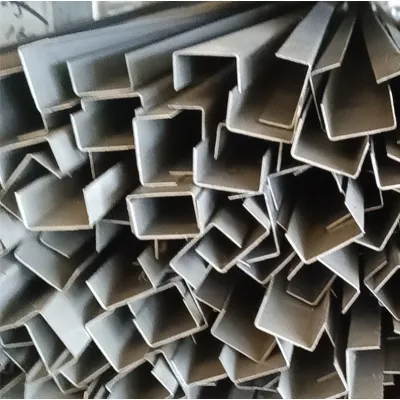loading...
- No. 9, Xingyuan South Street, Dongwaihuan Road, Zaoqiang County, Hengshui, Hebei, China
- admin@zjcomposites.com
- +86 15097380338
- Welcome to visit our website!
Exploring the Benefits of FRP Roof Decks for Modern Construction Solutions
Understanding FRP Roof Decks A Modern Solution for Roofing Needs
Fiberglass Reinforced Polymer (FRP) roof decks are gradually becoming a popular choice for both commercial and residential buildings due to their numerous advantages over traditional roofing materials. This article delves into the features, benefits, applications, and considerations of FRP roof decks.
What is FRP?
FRP is a composite material made from a polymer matrix reinforced with fibers, usually fiberglass. This combination offers a unique set of properties that make FRP an ideal choice for roofing applications. The lightweight yet strong nature of FRP, paired with its durability, makes it a standout option in modern construction.
Advantages of FRP Roof Decks
1. Durability One of the most significant benefits of FRP roof decks is their impressive durability. They are resistant to weathering, chemicals, and UV radiation, meaning they can withstand harsh environmental conditions without deteriorating. This resilience translates to a longer lifespan and reduced maintenance costs.
2. Lightweight FRP is considerably lighter than traditional materials such as concrete or metal. This reduced weight can lead to lower structural support requirements, enabling architects and engineers to design more efficient buildings.
3. Corrosion Resistance Unlike steel or wood, which can corrode, rot, or degrade over time, FRP is intrinsically resistant to degradation caused by moisture and chemicals. This feature makes FRP roof decks particularly suitable for industries where exposure to corrosive elements is a concern.
4. Thermal Insulation FRP materials naturally possess excellent thermal insulation properties, enhancing the energy efficiency of buildings. This characteristic can lead to significant savings on heating and cooling costs, further solidifying their benefits in commercial applications.
frp roof deck

5. Low Maintenance The longevity and resistance to various environmental factors mean that FRP roof decks require minimal maintenance. Property owners can save time and money that would otherwise be spent on frequent repairs.
Applications of FRP Roof Decks
FRP roof decks are versatile and can be employed in various settings, including
- Commercial Buildings Retail spaces, warehouses, and manufacturing plants often utilize FRP roofing for its durability and low weight. - Industrial Facilities Chemical plants, waste treatment facilities, and other industrial settings benefit significantly from the corrosion resistance of FRP. - Residential Projects Home builders are increasingly opting for FRP due to its aesthetic appeal and modern performance features. - Repair and Retrofit FRP can be used to reinforce existing structures, providing a cost-effective solution for repairs.
Considerations
While FRP roof decks offer numerous advantages, it is important to consider certain factors - Initial Cost The upfront cost of FRP can be higher than that of traditional materials. However, the long-term benefits, including reduced maintenance and longevity, often offset this initial investment. - Installation Proper installation is crucial to maximize the performance of FRP roof decks. It is advisable to work with experienced contractors familiar with FRP materials.
Conclusion
As the construction industry continues to evolve, FRP roof decks emerge as a viable and innovative option for a wide range of building projects. Their blend of durability, lightweight properties, corrosion resistance, and energy efficiency makes them a formidable competitor to traditional roofing materials. While there are considerations to keep in mind, the long-term advantages often outweigh the initial costs, making FRP roof decks an excellent choice for modern construction needs. Whether for commercial, industrial, or residential projects, FRP roof decks are indeed paving the way for the future of roofing solutions.
-
The Rise of FRP Profiles: Strong, Lightweight, and Built to LastNewsJul.14,2025
-
SMC Panel Tanks: A Modern Water Storage Solution for All EnvironmentsNewsJul.14,2025
-
GRP Grating: A Modern Solution for Safe and Durable Access SystemsNewsJul.14,2025
-
Galvanized Steel Water Tanks: Durable, Reliable, and Ready for UseNewsJul.14,2025
-
FRP Mini Mesh Grating: The Safer, Smarter Flooring SolutionNewsJul.14,2025
-
Exploring FRP Vessels: Durable Solutions for Modern Fluid HandlingNewsJul.14,2025
-
GRP Structures: The Future of Lightweight, High-Performance EngineeringNewsJun.20,2025
